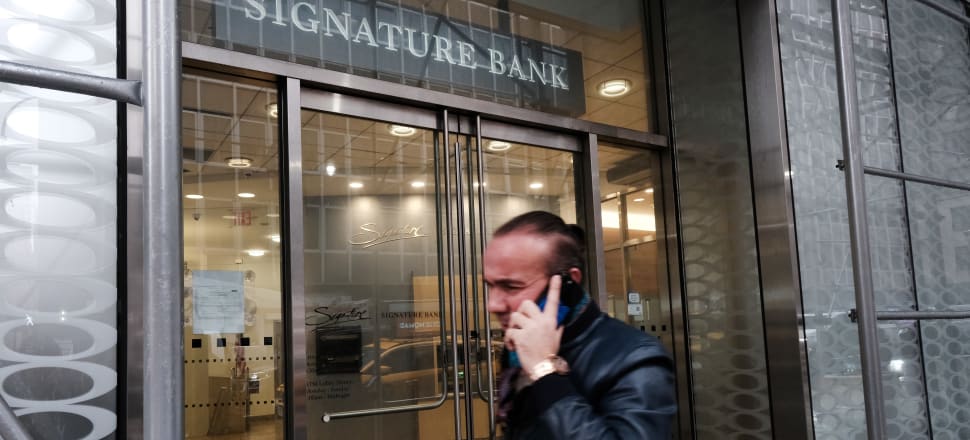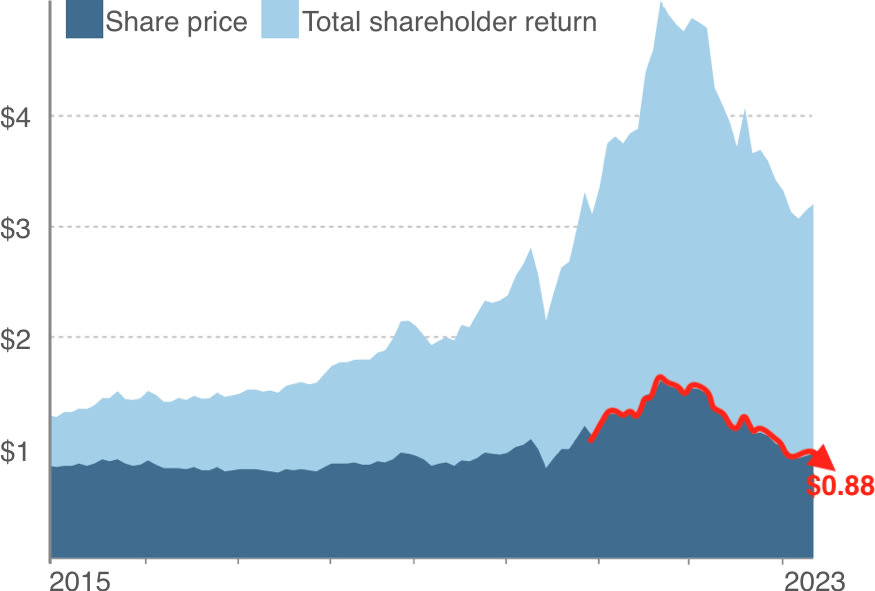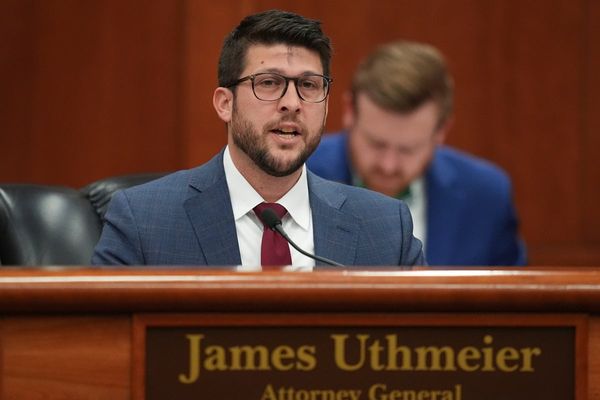
Marlin Global holds shares that may now be worthless in the New York-based Signature Bank, shut down by US regulators as they try to prevent a widening financial crisis. Jonathan Milne reports.
The NZ-listed international investment fund managed by Fisher Funds has disclosed it has 3.3 percent of its portfolio tied up in shares in the latest bank collapse.
In the past week, First Republic Bank voluntarily ceased trading, then Silicon Valley Bank and now Signature Bank have been shut down by the Federal Deposit Insurance Corporation. SVB and Signature are the biggest US bank collapses since Washington Mutual in 2008, at the height of the global financial crisis.
NZ financial institutions had been opposing a levy-funded deposit compensation scheme in this country – in KPMG's annual performance survey of New Zealand's banks, published this morning, they argued the risk of them collapsing was already mitigated by the Reserve Bank requirement that they increase their capital adequacy ratios over a seven-year period.
But now some in finance sector are softening their opposition. KPMG partner John Kensington, the consultancy's head of banking and finance, told Newsroom the bank collapses overseas made him more sympathetic to the need for a guarantee scheme here. "With the incidents of the last few days you'd be very, very brave to argue against it in New Zealand," he tells Newsroom.
READ MORE: * Markets shudder as bank collapse leaves Silicon Valley reeling * Reserve Bank would back a Commerce Commission into bank profits * Victoria Carter: Bringing banks to social account
"It just shows you how quickly something can come to light. And it's an industry where things can change very quickly. So this week, seeing what's happened, I'm probably more supportive of it.
"It's the role of regulators to shore up the system and make the system safer. And if they can do that by increasing capital rates, or if they can do that with a deposit taker's bill and insurance scheme, then that's good, too. I think in the current environment, people would probably err on the side of having a deposit insurance scheme at the moment."
Signature Bank board member Barney Frank, the former congressman who formed one half of the landmark Dodd-Frank financial law after the 2008 financial crisis, says Signature suffered a bank run of billions of dollars.
Customer concern over its exposure to crypto spiralled after SVB’s collapse. Customers told executives they felt more comfortable at giant banks such as JPMorgan Chase. "It was an SVB-generated panic,” he says. “We were fine until the last couple of hours on March 10."
"When the Deposit Takers Bill is passed by Parliament later this year it will close a longstanding gap in NZ’s financial safety net that brings us in line with international practices. In the meantime, depositors should have confidence in the resilience of the financial system." – Grant Robertson, Finance Minister
US Treasury Secretary Janet Yellen has announced that SVB and Signature customers will get all of their deposits back, including money above the $250,000 limit for federal deposit insurance. The compensation will be funded out of the Deposit Insurance Fund.
But that doesn't extend to other creditors and those who have equity in the Nasdaq-listed banks. Equity and bondholders at both Signature and SVB are being wiped out, a senior Treasury official told US media.
Marlin Global corporate manager Wayne Burns issued a market update late on Monday, disclosing the fund's investment in Signature.
Marlin Global share price dips slightly

"The move by the FDIC will protect all of Signature Bank’s deposit holders, but will not protect Signature Bank shareholders or certain unsecured debt holders," he advised. "Signature Bank is one of the 22 portfolio investments held by Marlin Global Limited."
At the start of this month, Marlin Global reported a net asset value of $177m for its investments in 22 global tech companies led by Meta, Amazon and Alphabet.
Its investment in Signature Bank made up 3.3 percent of its portfolio, or about $5.8 million, on its last asset valuation. Marlin Global will update its net asset value for release to the NZX on Thursday, March 16.
"It's probably no different to a stock dropping 3 percent of its value – except the difference, of course, is that stock could still rally at a later point in time. Whereas, with the worst case scenario, there is no comeback." – Wayne Burns, Marlin Global
Marlin Global has two sister companies, Kingfisher and Barramundi, all set up by Fisher Funds with the same directors. "The three listed investment companies all make full disclosure, and the Fisher Funds manager obviously keeps all the investors briefed," Burns tells Newsroom. "Signature is one of 22 investments and they're all reviewed continuously, so everyone's watching developments quite closely."
Is there a risk that Marlin doesn't get any of its money back? "Correct," Burns says. "Yes, that is the worst case scenario."
"Any loss is upsetting, but these things happen. So it's probably no different to a stock dropping 3 percent of its value – except the difference, of course, is that stock could still rally at a later point in time. Whereas, with the worst case scenario, there is no comeback."
Oliver Mander, chief executive of the NZ Shareholders' Association, says investors have generally consider the three sister funds to be well managed. "In some ways it actually proves the power of diversification. Signature goes pop, but you haven't lost your entire investment – in fact you've still got 97 percent of your investments that are going to able to earn you money on an ongoing basis.
"From a reputation and credibility perspective, Fisher Funds will want to make sure investors keep seeing Marlin as a good place to invest."
Other NZ companies that looked to have been burned by the collapse of the US banks, are now expecting to have their deposits covered by the US Deposit Insurance Fund payouts. These include Nasdaq-listed Rocket Lab USA (US$38m), NZX-listed Comvita ($2.5m), ikeGPS ($5.3m), and ASX- listed Xero ($5m) and Laybuy (less than $10,000).
The payouts to cover their deposits are now drawing attention to the lack of a similar deposit guarantee scheme in New Zealand – this country and Israel are the only nations in the OECD without deposit insurance.
NZ banks' net interest margin (%) exceeds forecast
That's not to say governments won't bail out financial institutions and their investors, in a crisis. It's often been said that NZ banks are "too big to fail".
New Zealand governments have previously bailed out BNZ (twice, in the 1890s and again in 1990) and in the wake of the 2008 global financial crisis, the Government came to the rescue of finance companies including South Canterbury and AMI. The retail deposit guarantee scheme set in place in 2008 paid out $1.77b to mum-and-dad investors before it ended in October 2010.
At present the main protections for depositors and shareholders are the open bank resolution policy enabling the Reserve Bank to re-open a failed bank the next day under statutory management, and deposit guarantees provided by some of the Australian parent companies.
"In a world where financial markets are getting tough, it's in the banks' interest to make sure that things look safe and credible for investors." – Oliver Mander, Shareholders Association
There seems little appetite to accelerate or extend a Parliamentary bill to set up a compensation fund to cover deposits of up to $100,000, paid for from a levy on banks and other deposit holders.
The Finance and Expenditure Select Committee is to report the bill back to Parliament on March 23. The Labour MP who has just taken up the chair of the committee, Rachel Brooking, said the committee would meet on Wednesday. "We will discuss whether the use of depositor compensation overseas is a relevant consideration for the committee."
In the US, depositors typically have up to US$250,000 guaranteed by the Federal Deposit Insurance Corporation, an independent agency created by the Congress to maintain stability and public confidence in the nation's banks. But there's no such government-backed insurance in New Zealand, until the Deposit Takers Bill is enacted. Even then, it will compensate only deposits of up to $100,000.
The bill is sponsored by Finance Minister Grant Robertson. "There is no intention at this stage to reconsider the level of deposits guaranteed in the event of a bank failure," he tells Newsroom.
"The $100,000 limit was doubled after consultation and will fully protect 93 percent of depositors. There are no plans to fast track the law as we want to get it right. When the Deposit Takers Bill is passed by Parliament later this year it will close a longstanding gap in New Zealand’s financial safety net that brings us in line with international practices.
"In the meantime, depositors should have confidence in the resilience of the financial system. New Zealand banks are required to meet the capital ratios required by the Reserve Bank. Banks currently hold significant buffers of excess capital and liquidity over regulatory minimums, and the banking sector is in good health."
""It would be saddening if we reached a point where some of the smaller banks are forced to close due to regulatory change, for example, branch consultancy, Deposit Takers Act ... This is a very real possibility with the increased burden of regulation making it difficult for some to remain profitable." – Financial Institutions Performance Survey, KPMG
The NZ Banking Association, in its submission to the select committee, warned that a poorly designed and hastily implement depositor compensation scheme would actually heighten the likelihood of a bank run. Uncertainty about payouts would incentivise customers to withdraw their deposits at the first signs of trouble.
This week, chief executive Roger Beaumont says the association stands by that submission. “Time and care is needed to get the depositor compensation scheme right and make sure it complements existing ways to mitigate and protect against bank failure," he says.
"We already have the Reserve Bank’s open bank resolution policy in place, banks are being required to almost double the capital they hold, and our banks routinely pass the Reserve Bank’s severe stress testing scenarios.
"Profitable and well-regulated banks are strong banks, and our banks came through the global financial crisis without failures or government bailouts."
But Mander, from the Shareholders Association, welcomed a softening of opposition to the Government's deposit guarantee scheme, in the financial sector.
"In a world where financial markets are getting tough, it's in the banks' interest to make sure that things look safe and credible for investors.""What's going on the US at the moment is concerning. It's a sign of the times. Those of us with longer memories know that this is a risk in the financial services industry when times get tough."
But there seems no reason to be concerned about the stability of New Zealand banks, which the Reserve Bank has assessed as well capitalised and resilient. "New Zealand's been through recessions before, it's been through difficult economic times. We'll treat this one in the same way."
The US Treasury's decision to cover all of the two banks' deposits, not just the first $250,000 of each deposit, showed a determination to retain investor confidence in that country's financial system. "The fact they're standing by their financial services industry is probably a good signal for investors, depositors and lenders."
The KPMG Financial Institutions Performance Survey, published this week, highlights the cost and difficulty of recruiting and retaining staff to work through all the new regulations and compliance requirements. Banks says their sector was hit especially hard by talent shortages. "The ever-increasing regulatory requirements led to a shortage in this area, including in the ESG (environmental, social and governance) space where survey participants noted that there were not enough people in the market who had the necessary skills to implement the required disclosures."
The added compliance costs were becoming too much for some small banks, who were struggling to afford to keep operating here. "It would be saddening if we reached a point where some of the smaller banks in the banking sector are forced to close due to the outcome of regulatory change, for example, branch consultancy, Deposit Takers Act, or New Zealand simply being seen as a place that was either too hard or too expensive to do business in," the report says.
"This is a very real possibility with the increased burden of regulation making it difficult for some to remain profitable."







